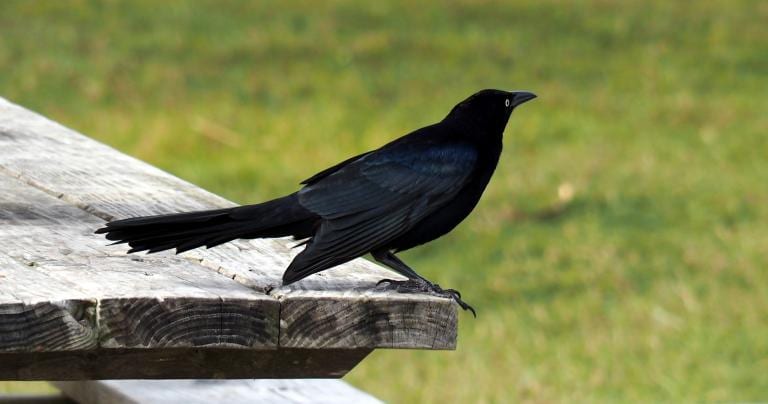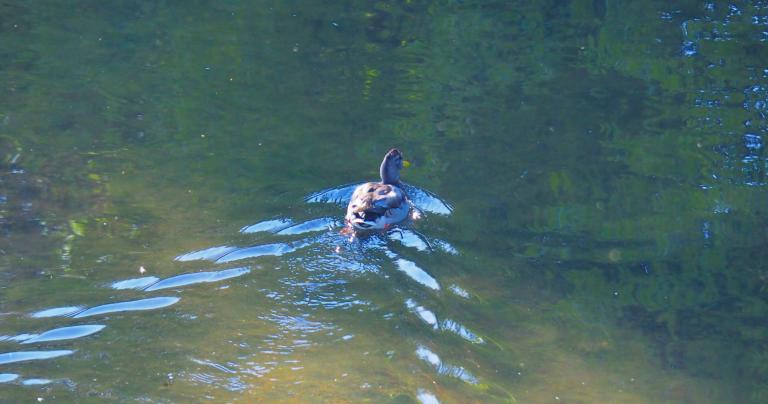For at least as long as we’ve been human, people have been asking why there is suffering in the world. Why is there pain, disease, destruction, and death? Religions arose in part to try to answer that question, as well as to help deal with the reality of suffering. Paganism is no exception.
But what if that’s the wrong question?
It takes a certain amount of arrogance and self-centeredness to think that the presence of suffering means something is wrong. When we look at the world – at the universe – we see a beginning so violent the laws of physics break down trying to describe it. Most of the universe is space: cold, dark, and empty. Even the beauty of life is tempered by the fact that in order to live, we – and all other animals – must eat other living beings.
Rather than wondering why there is suffering, perhaps we would be better off wondering why there is joy.
I’m not talking about pleasure. Now, I’m a Pagan – pleasure is good. But pleasure is simply our body’s way of getting us to do what it needs us to do right now to keep on living, for now.
Joy is more than a pleasant feeling. It’s an understanding that at least for this moment, no matter what else is going on in our lives or in the wider world, all is well and good and right.
Joy isn’t necessary – pleasure alone will ensure the continuation of individuals, species, and life itself. And yet we experience it. Some of us experience it more than others – like everything else, joy is not distributed evenly or fairly.
But in a world where suffering is the rule, joy exists. Why?
There is joy because there is connection
Perhaps the greatest existential fear is the feeling that we’re alone. We crave touch, whether that touch is physical, emotional, or spiritual. Our contemporary society tries to fulfill all those needs with a romantic relationship where one person is “our everything.” That’s an impossible expectation for any one person, and it ignores the needs of those who are unpartnered for reasons of chance, necessity, or choice.
We can form connections with any willing person, and we do. We have families of blood and families of choice, friends and neighbors, colleagues and coreligionists. We form connections that are less intimate but no less real with people we meet the in public square: co-workers, customers, vendors, and passers-by.
“Any willing person” need not be human. We form connections with pets and occasionally with wild animals (from a respectful distance), with plants and trees, and with places that are meaningful to us. We form connections with Gods, ancestors, and spirits. We can even form connections with ideas, values, and virtues. Gordon White of Rune Soup likes to say “people don’t have ideas – ideas have people.”
We form connections, and when we do we are seen and heard. Our existence is affirmed and we know we matter. We learn something about the other person, and now we are more than we were before.
Deep in our souls, something whispers “this is right – this is good” and we find joy.
There is joy because there is abundance
To be alive is to have needs. To be human is to have many needs.
We need food and water to live. We need clothing and shelter if we are to live outside of the tropics. We need medical care if we are to overcome illnesses and injuries; we need education if our lives are to be as fulfilling and as contributing as they can be. Over the centuries human society has grown progressively more complex and our needs have grown more complex with it.
Fear of scarcity is a great cause of suffering. And occasionally there is true scarcity, as when droughts lead to wildfires and crop failures. But for most of us for most of the time, Nature is abundant.
For the few remaining hunter-gatherers, there are roots, berries, fruit, and small animals that can be trapped. For subsistence farmers there are vegetables and grains, chickens and goats. And for those of us living in the “first world” there is food in such quantity and variety that obesity, not starvation, is the greatest risk. We have clothing that is functional, comfortable, and even stylish.
Some societies do better than others at providing education and health care, but if you can read this the odds are good you have at least enough and likely much more. Books bring me joy and I know they bring joy to many of you as well – this is a golden age for readers.
The Earth’s abundance is not shared equally or fairly and that rightly troubles many of us, though not enough of us. It’s a short step from the joy of abundance to the dysfunction of greed and hoarding. But when we sit down in our warm houses and eat good food and know there is plenty more where it came from, we understand that life is good, and we experience joy.
There is joy because there is compassion
Suffering is inevitable – it’s a feature, not a bug. That doesn’t mean we have to like it. The desire to reduce or avoid suffering is one of the greatest drivers of innovation throughout human history. And the suffering we try to reduce isn’t always our own.
The word “compassion” literally means “suffering with.” It means we see another person and we recognize that they’re hurting. Their circumstances are their own – the cliché “I know what you’re going through” is always false to one degree or another. But the outcome of those circumstances is familiar – their suffering reminds us of our own suffering, and so we want to help.
Sometimes this is sitting silently with a grieving person and being with them in their pain. Sometimes it’s giving food or shelter or money to someone who isn’t sharing in life’s abundance. And sometimes it’s working to reform or replace systems that cause or permit suffering in the first place – charity is no substitute for justice.
Too much of our mainstream society assumes we are mercenary creatures who only help others when there’s a profit to be made, or some sort of social credit to be gained. But we are also compassionate creatures who recognize that reducing the suffering of others is inherently good.
When we participate in compassion – whether we are giving or receiving – we understand that we are not alone and that suffering can be lessened. And that brings joy.
There is joy because there is hope
Hope is the expectation that things will get better. That expectation is always uncertain but it is never unsubstantiated.
Spring always follows winter. Jobs go away and new ones open up. Broken bones heal – and so do broken hearts. Humans are resilient creatures. The older and more experienced we get, the more we come to know that bad times don’t last forever. It is reasonable for us to expect that things will get better.
We learn to trust in the compassion of others. If things are beyond our ability to cope, our family and friends will help. Perhaps not in the way we would prefer, but in a way that will move things forward to one degree or another. As Pagans and polytheists, we have the assistance and inspiration of our Gods and ancestors to draw on as well.
More importantly, we learn to trust in our own capabilities to persevere, to figure things out, and to make things better ourselves. Sometimes we do this through ordinary action, sometimes we ask for help, and sometimes we work magic to achieve our goals.
And although death remains the ultimate mystery, we have hope that it is not the end.
When we have hope that the bad parts of our lives will improve, we can better focus our attention on the parts of our lives that are going well, and that brings joy.
What if creating joy is why we’re here?
I’m reluctant to assign any ultimate purpose to life. Doing so implies a design to the universe and I see no evidence such a design exists. More importantly, it removes the right and the duty for each of us to determine our purpose for ourselves.
But as we are contemplating what our purpose might be (individually or collectively) it’s worthwhile to consider that maybe it’s to create joy.
When we form connections with other persons – whether they’re human persons, animal persons, or spirit persons – we create joy.
When we enjoy life’s abundance and when we make it more accessible to others, we create joy.
When we practice compassion toward others and when we accept their compassion toward us, we create joy.
When we hope and when we make others’ hopes a reality, we create joy.
Suffering is a reality of life. Thankfully, so is joy.



















